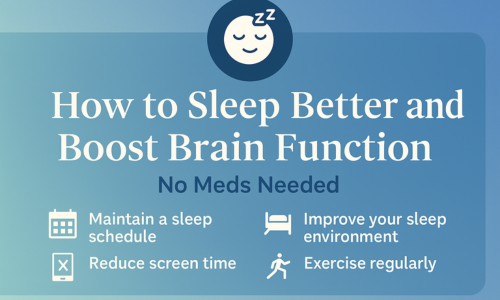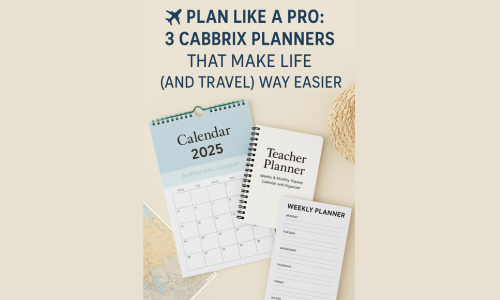This site may contain links to affiliate websites, and I may earn a commission for any purchases made through those links at no additional cost to you.

💤 How to Sleep Better and Boost Brain Function – No Meds Needed
Simple, science-backed strategies to sharpen your mind through better sleep
Do you find yourself tossing and turning at night—then dragging through the next day in a mental fog?
You’re not alone. In 2025, more people are searching for natural ways to improve sleep and mental clarity without relying on medication. The good news? There are small, powerful changes you can make starting tonight.
Here’s how to improve your sleep—and supercharge your brain—without a prescription.
🧠 Why Sleep Matters More Than Ever
Sleep isn’t just downtime—it’s when your brain processes information, repairs cells, and balances hormones. Chronic poor sleep affects everything from focus and memory to mood and decision-making. It’s a hidden productivity killer.
🌙 7 Natural Ways to Improve Sleep and Brain Function
1. Stick to a Consistent Sleep Schedule
Go to bed and wake up at the same time every day—even weekends. A regular rhythm trains your internal clock and helps you fall asleep faster.
2. Cut Screen Time 1 Hour Before Bed
Blue light from phones, laptops, and TVs suppresses melatonin (your sleep hormone). Try swapping scrolling for reading, journaling, or stretching before bed.
3. Optimize Your Sleep Environment
Keep your room cool, dark, and quiet. Invest in blackout curtains, earplugs, or a white noise machine. The right setting promotes deeper, uninterrupted sleep.
4. Limit Caffeine & Heavy Meals Late in the Day
Caffeine can linger in your system for 6+ hours. Avoid coffee, energy drinks, and chocolate in the late afternoon. And try to finish dinner at least 2-3 hours before bed.
5. Practice Mindful Wind-Down Rituals
Establish a calming bedtime routine—think herbal tea, breathing exercises, or light stretching. This signals your brain that it’s time to shut down.
6. Get Natural Light in the Morning
Morning light resets your circadian rhythm and improves nighttime sleep. Aim for at least 15 minutes of natural light as early in the day as possible.
7. Move Your Body (But Not Right Before Bed)
Exercise improves sleep quality, but intense workouts close to bedtime can be stimulating. Try morning or afternoon activity to see the best results.
🧩 Bonus: The Brain-Sleep Connection
Quality sleep improves memory consolidation, creativity, problem-solving, and emotional regulation. If you want to perform at your best, better sleep is your brain’s secret weapon.
⚡ Final Thoughts
You don’t need sleep pills to wake up clear-headed and energized.
You need better sleep habits—backed by science and built into your routine.
Start small. Stay consistent. Your brain will thank you.
Disclaimer: The content in this post is for informational purposes only and is not intended as medical, psychological, or professional advice. Always consult with a qualified expert before making significant changes to your health, work routine, or lifestyle. Individual results may vary.




